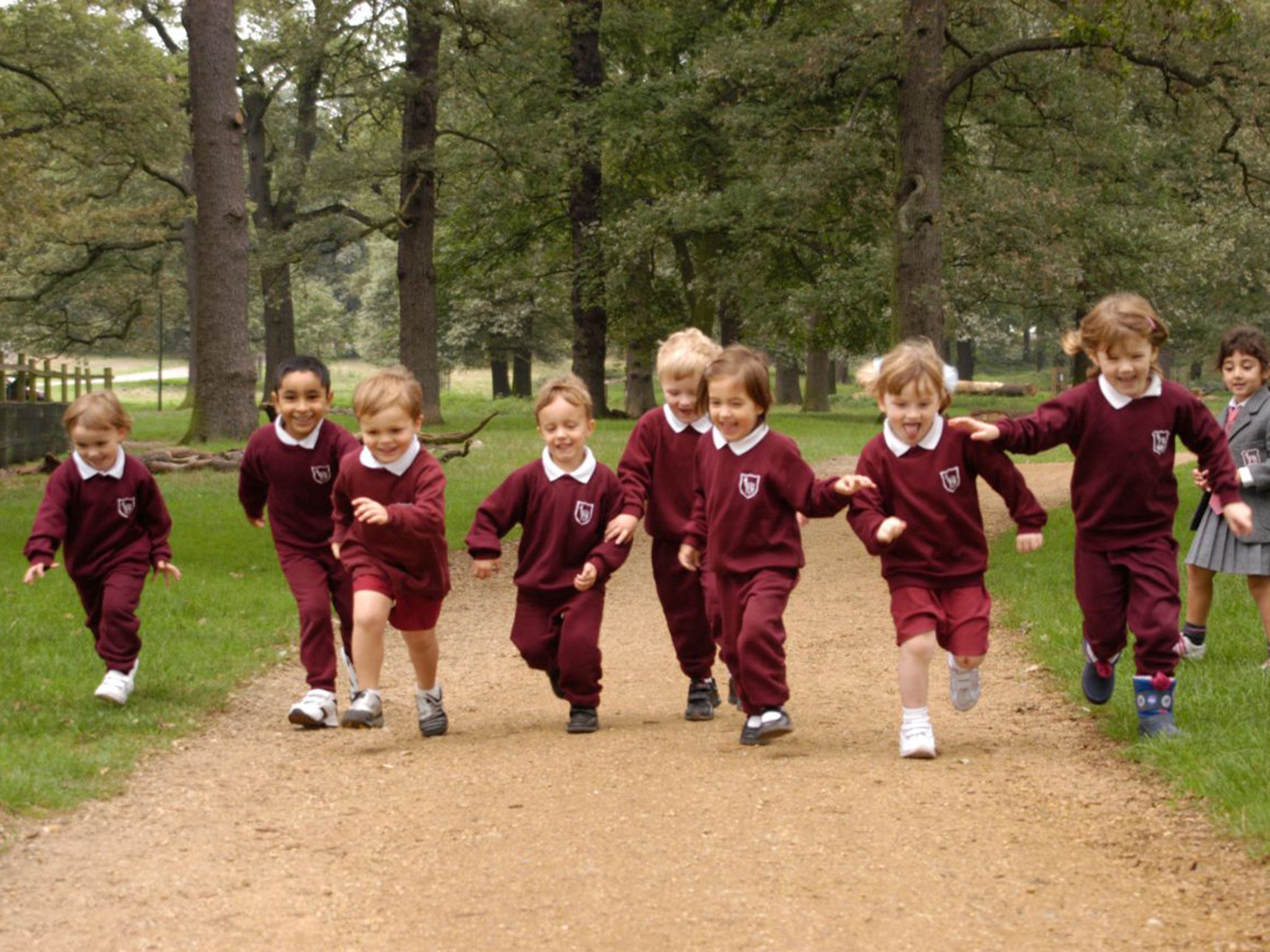Baseline tests for new primary school students 'dragoons children,' say campaigners calling for them to be scrapped
Opponents claim measuring pupils' progress is only to boost school ratings, while ministers insist checks are vital

Your support helps us to tell the story
From reproductive rights to climate change to Big Tech, The Independent is on the ground when the story is developing. Whether it's investigating the financials of Elon Musk's pro-Trump PAC or producing our latest documentary, 'The A Word', which shines a light on the American women fighting for reproductive rights, we know how important it is to parse out the facts from the messaging.
At such a critical moment in US history, we need reporters on the ground. Your donation allows us to keep sending journalists to speak to both sides of the story.
The Independent is trusted by Americans across the entire political spectrum. And unlike many other quality news outlets, we choose not to lock Americans out of our reporting and analysis with paywalls. We believe quality journalism should be available to everyone, paid for by those who can afford it.
Your support makes all the difference.A campaign to scrap new baseline tests for four- and five-year-olds to be taken in the first few weeks of their starting in reception class has been launched.
Ministers believe the new tests – which will measure things such as pupils’ ability to count, recognise letters, numbers and everyday objects – are vital to track children’s progress in primary school.
Opponents of the plan – due to be trialled in schools this September before being introduced nationally the following year – argue that the “tests” will introduce children to too formal a learning atmosphere at too early an age at a time when they do not have the necessary concentration span.
Early-years campaigners have launched an online petition – attracting more than 500 signatures in its first two days – calling for its withdrawal. The National Union of Teachers is also calling for a ballot on boycotting the tests, at its annual conference.
Dr Richard House, chartered psychologist and former senior lecturer in early childhood at Winchester University, who has founded the “Too Much, Too Soon” campaign dedicated to opposing the early-years checks, described the proposal as an “unwarranted dragooning of young children into institutional schooling that is then generating the need to assess them”.
“Michael Gove may have gone, but his reactionary nostalgia for some bygone age of rigid discipline and an education system that drills children into obedient compliance, ready to be fodder for the economic system, is alive and kicking.
“We mustn’t be fooled by the warm and fuzzy sounds and smiley faces that have temporarily replaced the zealots in the Department for Education – the iron fist is still there, if temporarily hidden, and will no doubt emerge again immediately if the current Government is returned to power in May.”
Petition signatories include Professor Cathy Nutbrown, head of Sheffield University’s School of Education, and Julian Grenier, head of Sheringham Nursery School and Children’s Centre in Newham, east London, and Helen Moylen, co-author of Development Matters.
“Baseline assessment was introduced in the late 1990s and scrapped... because it was not effective,” Professor Nutbrown said.
The petition being sent to the Education Secretary, Nicky Morgan, urges her to scrap the plans. The campaigners want ministers to stick with the current programme of producing an Early Years Foundation Stage Profile as a measure of children’s progress at the end of their nursery setting.
Beatrice Merrick, chief executive of Early Education, said the plans “would subject children who are not yet of statutory school age – some barely past their fourth birthday – to assessments in the name of accountability so schools can demonstrate the ‘value’ they add between reception and Year 6 [for 11-year-olds].”
“However, the proposed assessments are not a reliable or valid source of data and ... for many the process could be harmful.”
Supporters of the tests say they will give teachers an insight as to what children are capable of but they will also help measure how much individual schools improve their pupils’ performance. The results can also be used to better rank schools in performance league tables and, say supporters, help identify those “in need of intervention”. Supporters include chief schools inspector Sir Michael Wilshaw, who has argued the “best nurseries” are those that frequently assess their children.
An Education Department spokeswoman said: “We want to see all children leaving primary school with a good standard of reading, writing and maths, and teachers agree that measuring progress is the best way to ensure schools are doing this. There is absolutely no suggestion of introducing the kind of formal testing in reception used with older children – that would be completely inappropriate”.
The baseline assessments have been submitted for evaluation by the Standards and Testing Agency.
Join our commenting forum
Join thought-provoking conversations, follow other Independent readers and see their replies
Comments